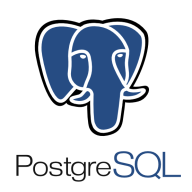

PostgreSQL and ClickHouse are open-source databases catering to different needs, such as SQL compliance and real-time analytics. PostgreSQL, with its extensive feature set and robust community support, seems to have the upper hand in handling diverse data types and offering strong stability.
Features: PostgreSQL supports scalability for write-intensive tasks, adheres to strict SQL standards, and offers diverse programming language support. ClickHouse efficiently processes real-time data with its columnar storage system and is known for speed and cost-efficiency when managing large datasets.
Room for Improvement: PostgreSQL struggles with read-only query efficiency and lacks some SQL commands available in other databases like MySQL. It also has slower processing for large records and a smaller community compared to MySQL. ClickHouse needs improved integration with third-party tools and better documentation. It also faces challenges with transactional data handling.
Ease of Deployment and Customer Service: PostgreSQL offers flexible deployment options, extensively used in on-premises and hybrid cloud setups, backed by strong community support, though official customer service is limited. ClickHouse is similarly used in varied deployments, noted for its ease of setup by users.
Pricing and ROI: Both PostgreSQL and ClickHouse are open source, entailing no direct licensing costs. PostgreSQL requires investment in training and infrastructure support, yet offers strong ROI. ClickHouse, free and particularly effective when self-hosted, delivers efficient ROI with minimal deployment costs, ideal for budget-conscious projects.
| Product | Market Share (%) |
|---|---|
| PostgreSQL | 14.3% |
| ClickHouse | 6.4% |
| Other | 79.3% |

| Company Size | Count |
|---|---|
| Small Business | 13 |
| Midsize Enterprise | 4 |
| Large Enterprise | 8 |
| Company Size | Count |
|---|---|
| Small Business | 57 |
| Midsize Enterprise | 26 |
| Large Enterprise | 46 |
ClickHouse is renowned for its speed, scalability, and real-time query performance. Its compatibility with SQL standards enhances flexibility while enabling integration with popular tools.
ClickHouse leverages a column-based architecture for efficient data compression and real-time analytics. It seamlessly integrates with tools like Kafka and Tableau and is effective in handling large datasets due to its cost-efficient aggregation capabilities. With robust data deduplication and strong community backing, users can access comprehensive documentation and up-to-date functionality. However, improvements in third-party integration, cloud deployment, and handling of SQL syntax differences are noted, impacting ease-of-use and migration from other databases.
What features make ClickHouse outstanding?
What benefits should users consider?
ClickHouse is deployed in sectors like telecommunications for passive monitoring and is beneficial for data analytics, logging Clickstream data, and as an ETL engine. Organizations harness it for machine learning applications when combined with GPT. With the ability to be installed independently, it's an attractive option for avoiding cloud service costs.
PostgreSQL is a versatile and reliable database management system commonly used for web development, data analysis, and building scalable databases.
It offers advanced features like indexing, replication, and transaction management. Users appreciate its flexibility, performance, and ability to handle large amounts of data efficiently. Its robustness, scalability, and support for complex queries make it highly valuable.
Additionally, PostgreSQL's extensibility, flexibility, community support, and frequent updates contribute to its ongoing improvement and stability.
We monitor all Open Source Databases reviews to prevent fraudulent reviews and keep review quality high. We do not post reviews by company employees or direct competitors. We validate each review for authenticity via cross-reference with LinkedIn, and personal follow-up with the reviewer when necessary.